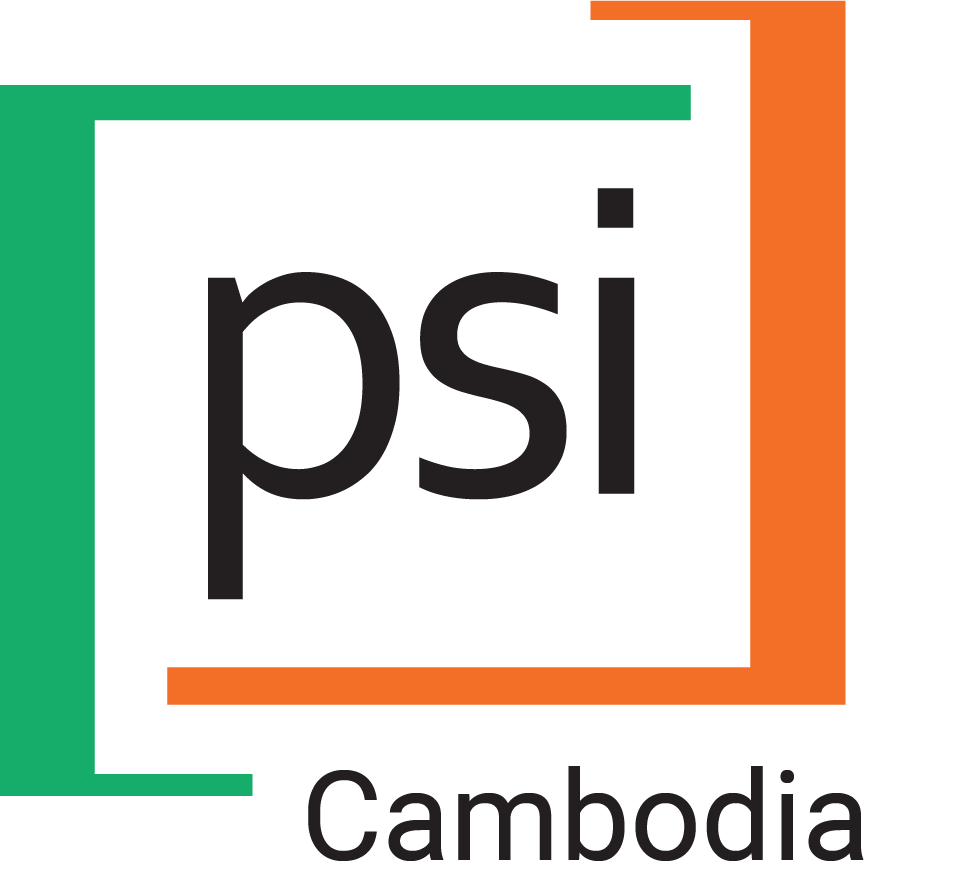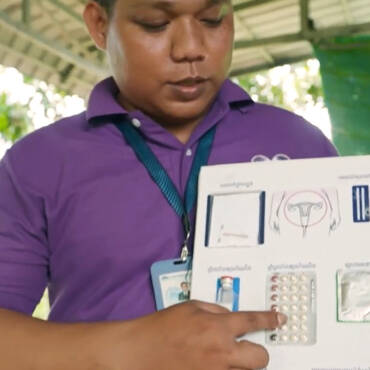Loving Relationship & Heart Protector Campaign
An SBC activity to increase modern method family planning adoption in Cambodia
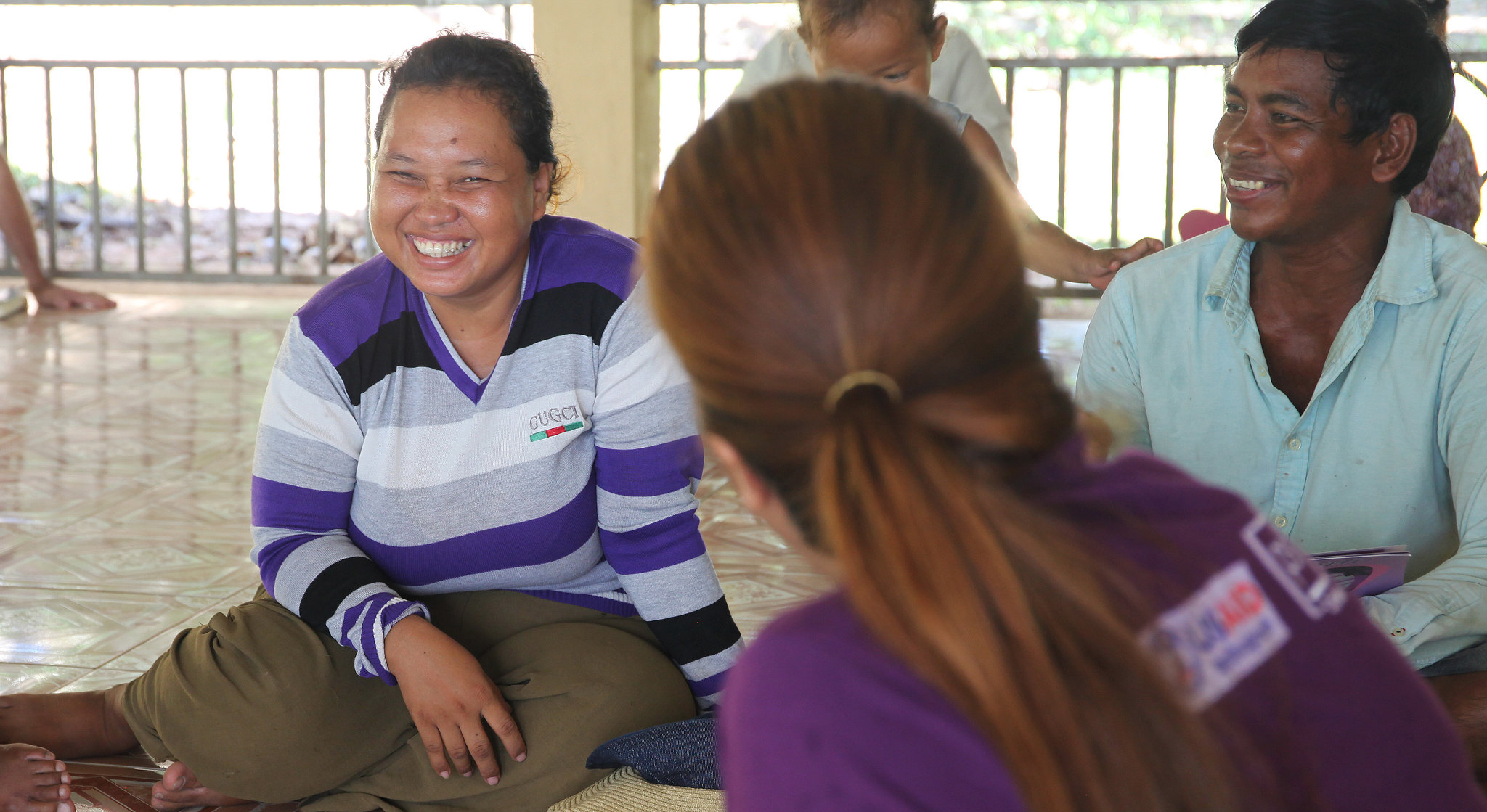
Utilization of modern methods of family planning (MMs-FP) is vital to helping women and couples to ensure their health and maintain better control over their life choices and their livelihoods. Across Cambodia, strides have been made regarding increasing use of MMs (from 39% in 2014 to 52% in 2017), however certain segments of the population have shown less progress and much work is needed to ensure all Cambodians can meet their FP needs.
USAID-funded Promoting Healthy Behaviors Project (PHB) is implementing a social and behavior change (SBC) activity with local implementing partners in several provinces of Cambodia to increase knowledge, change perceptions around MMs, and increase adoption of MMs-FP. Based on research and insight gathered, two intervention concepts “Loving Relationship” and “Heart Protector” are designed and SBC activities developed to 1) dispel persistent myths and misperceptions about MMs of contraception, 2) encourage couples to discuss MMs-FP and make decisions together, and 3) have men start talking to their wives about MMs-FP.
KEY MESSAGES
- MMs are safe
- MMs are more reliable than TM
- There are a variety of MM options available, each with its own benefits
- FP is an important part of being a couple – and can be fun!
- Speak with your partner and your health care provider about MMs
TARGET AUDIENCES
- Couples who do not use FP methods or those use a traditional method (TM)
- Men who do not use FP methods or those use TM only
- Postpartum women who have given birth in the last 4 weeks
BEHAVIORAL OBJECTIVES
- Increase knowledge about MMs-FP and options available
- Provide correct information about different MMs-FP, including duration and possible side effects
- Instigate and foster open discussions between partners about best suited MMs for them
- Motivate couples and men to consult with a trained health provider or attend a health center for more information on MMs-FP
- Ultimately, to encourage non-users or TM users to adopt a MM-FP
STRATEGIES AND TOOLS
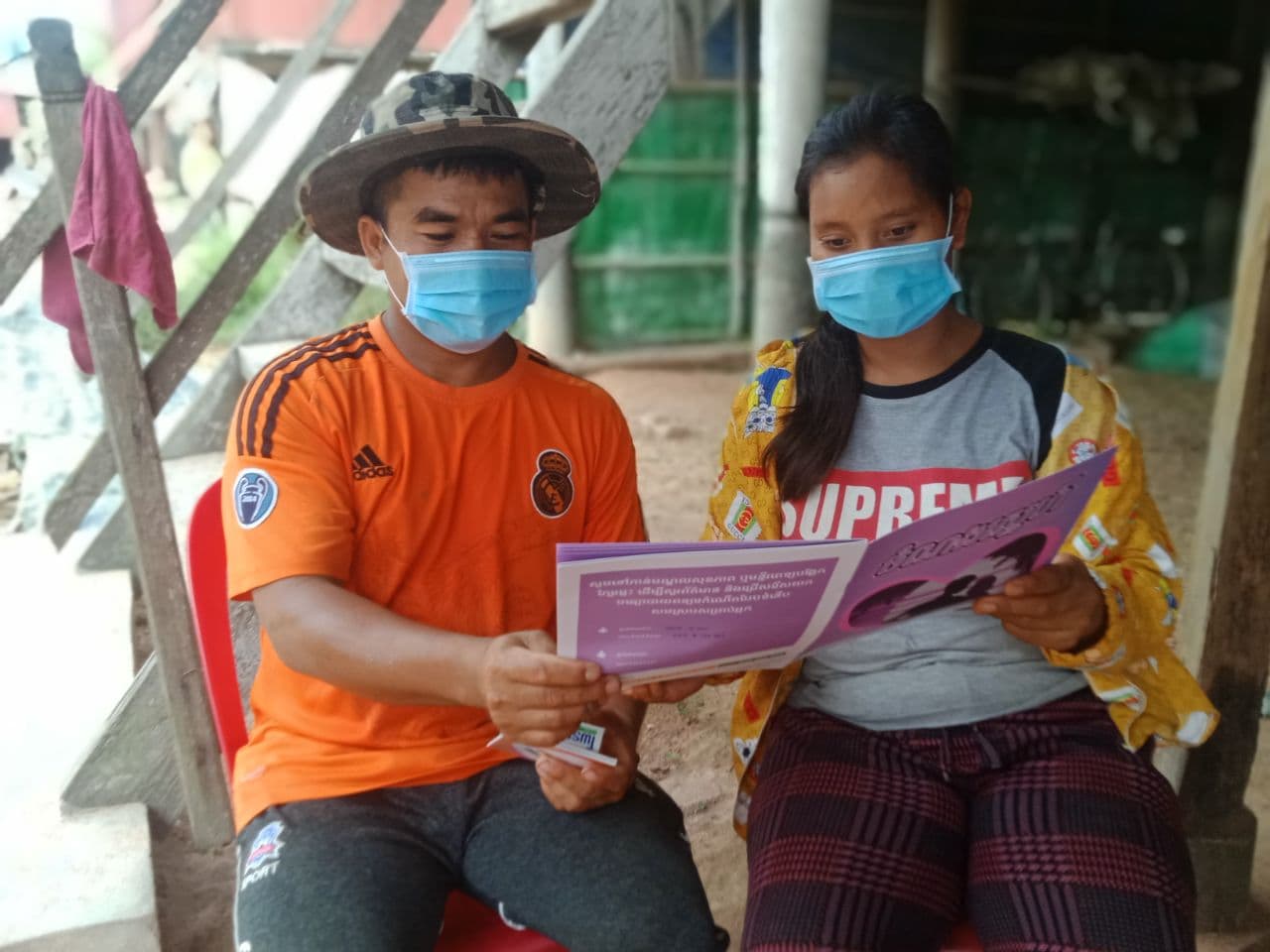
COUPLE’S SESSION
Couples typically make decision together but may have difficulty discussing contraception. These couple’s sessions create a safe space for couples to have conversation around FP by utilizing a “date night” format. 4-5 couples are invited to an evening session with an IPC agent who facilitates discussion on FP, framing it as an important part of an intimate relationship. During the session, couples participate in a fun and engaging quiz-style activity while learning about various MMs and dispelling common myths surrounding them.
Invitation Cards are handed out by the village chief to invite couples to the couple’s session and to inspire other couples in the village to participate – to create social support for MM adoption.
A Video is presented to show misconceptions or myths about MMs which can prevent adoption. The IPC agent leads discussion on the content and provides an opportunity for the participants to raise and discuss other myths they may have heard.
Dating Connection Cards are used to remind couples about their love journey. Each couple picks a card, reads it out loud and shares their answer with the group.
A “true or false” game is created to dispel community-spread myths about MMs while having fun. The IPC agent reads out a statement about MMs which may or may not be a myth, each couple discusses it and raises either “true” or “false” panel to indicate their response. The IPC agent notes down the number of couples correctly identifying myth statements and provides correct information to dispel myths.
A “Loving relationship booklet” is given to each couple to review during the session and to take home to continue discussion with their partner. It includes information on MMs, FAQs, myths and contact details for further information on MMs.
Real product samples are presented to couples that allow them to see and feel actual contraceptive products, particularly IUDs and implants to decrease fears and misconceptions.
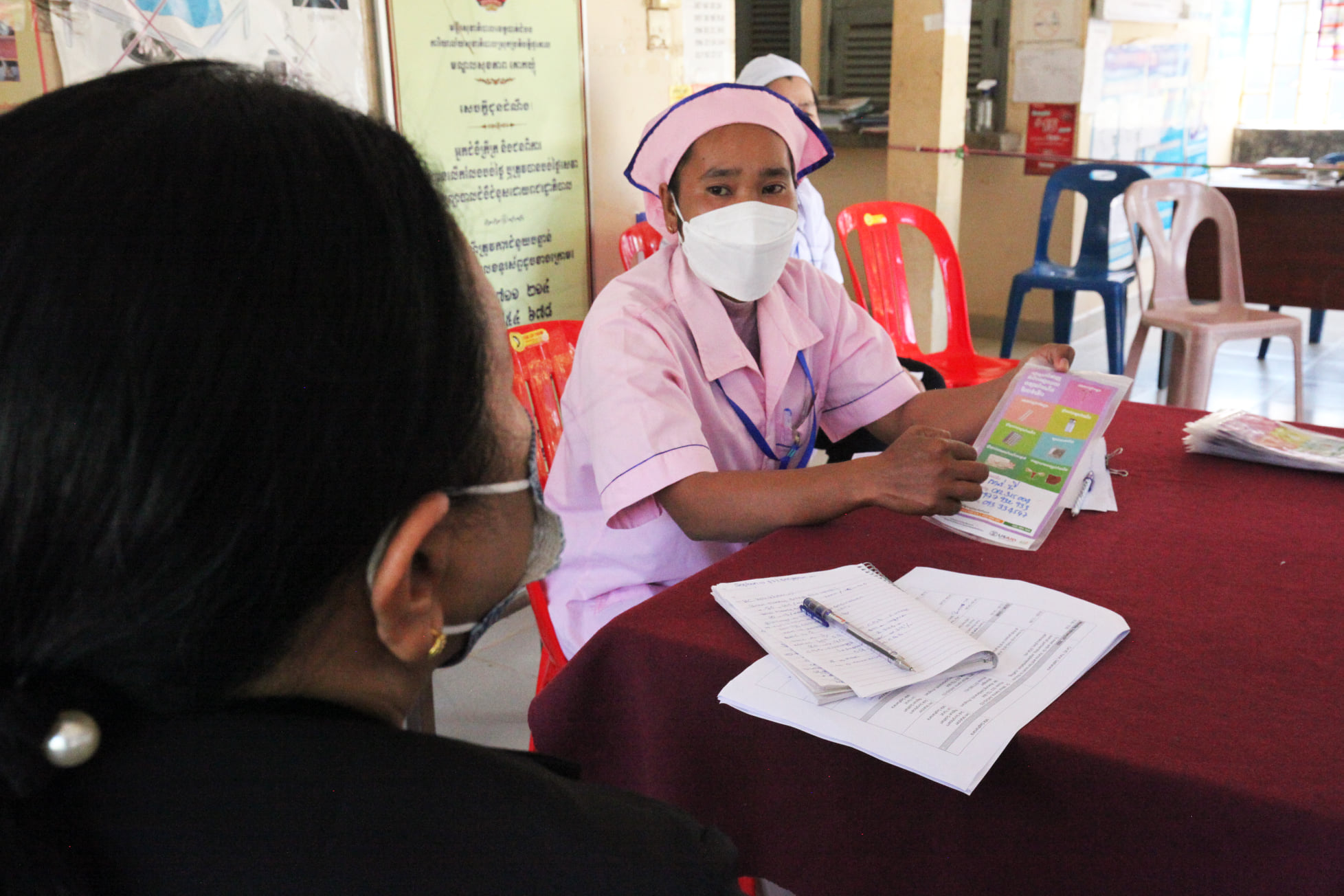
HEALTH CENTER ENGAGEMENT
In order to encourage postpartum discussions around MM, IPC agents engage with health centers throughout the intervention zone and provide them with handy sleeves for their children’s immunization cards. These sleeves, which are distributed to postpartum women when discharged from the clinic, help spur a conversation between women and the health center around postpartum family planning. The sleeves include a family planning hotline number and the contact information for connecting them with a resource they can reach out to with any questions on MM family planning.
The sleeves for the immunization cards remind them that they can get pregnant within 4-6 weeks of giving birth and encourages early adoption/re-adoption of an FP method.
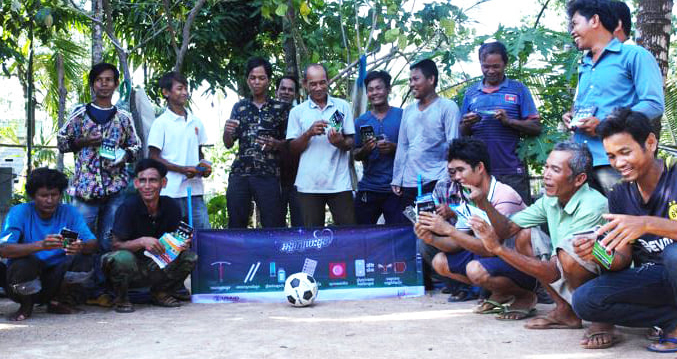
MEN’S SESSIONS
In addition to engaging with couples, the PHB SBC activity recognizes that men are a key part of household decision making regarding FP and that they are often more open to discuss FP around other men. Thus, the intervention organizes men-only session led by male IPC agents. During these sessions, men share their experiences of FP methods, are introduced to MM options, have myths dispelled and discuss any concerns they may have. Ultimately these sessions seek to get men to agree to discuss FP options with their partners.
A goalkeeper game is designed as a metaphor to demonstrate the best defense against unwanted pregnancies in a fun and memorable way. The goalkeeper symbolizes using TM. The message to take home is that a goalkeeper (TM) who are supported by other defenders (MMs-FP) are more effective in blocking a score (preventing unwanted pregnancies).
Takeaway tools including a handy key chain are given to participants that provide detailed information about MMs with FAQs. These tools remind participants of MMs and include a call to action – “talk to your partner about which MM-FP would be right for your family”.
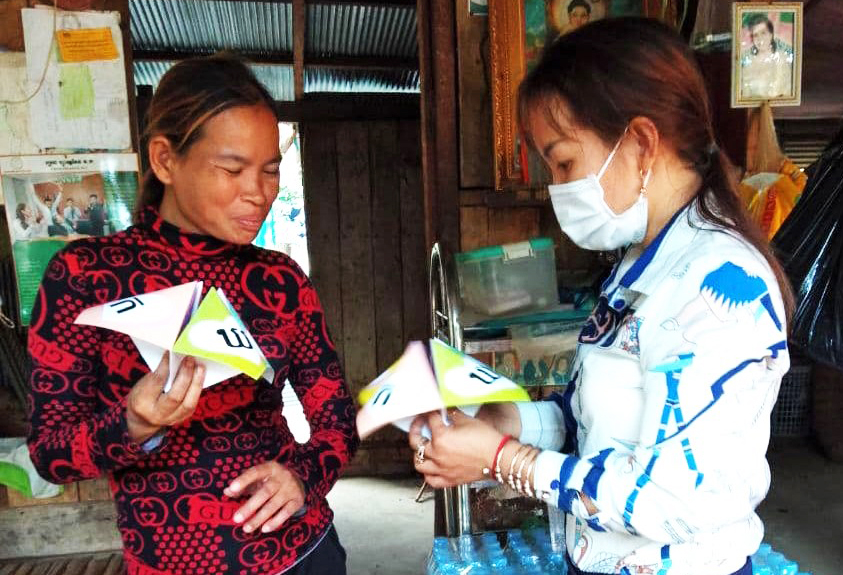
FOLLOW-UP ENGAGEMENT
IPC agents carry out follow-up household visits with their session participants to provide more individualized discussion on couples’ concerns and questions on MMs. Group session materials can be reviewed and the IPC agents direct couples to the nearest health center or referral hospital to obtain FP method of their choice.
A fertility prediction game is used when IPC agents carry out couples’ household visits. It demonstrates the higher risk of TM and helps to increase interest in MMs. The IPC agents show couples how to play the game and they can then play with other couples to promote project engagement.
MONITORING, EVALUATION AND LEARNING
PHB conducts ongoing monitoring of this and all its SBC activities, capturing data in terms of activities implemented, people reached, and materials distributed, as well as information on beneficiaries’ knowledge, attitudes, and behavior prior to and after exposure to PHB’s activities. Results and lessons learned are used to iterate and improve the SBC activities, and are regularly shared with the wider SBC community.
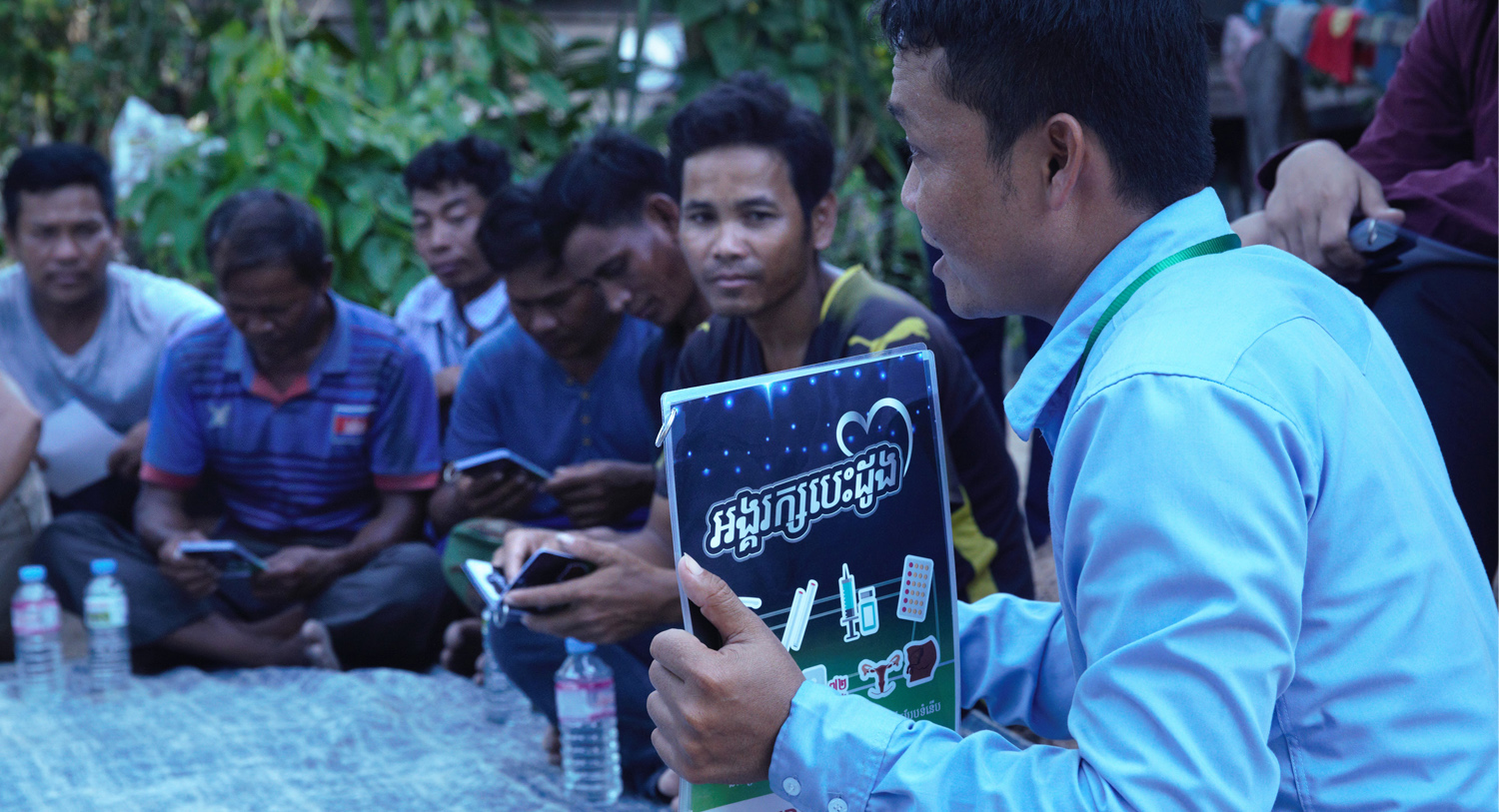
* The Promoting Healthy Behaviors (PHB) Activity is a USAID-funded Social and Behavior Change project that commenced in 2018. The goal of PHB is to improve health behaviors among Cambodians and ensure they seek and receive quality healthcare with decreased financial hardship. PHB initially targeted 6 key health areas: Maternal & Child Health; Nutrition; Water, Sanitation and Hygiene (WASH); Tuberculosis; Family Planning; and Malaria. In 2020-2021, PHB also implemented COVID-related activities in response to the global pandemic. Towards the end of 2021, noncommunicable diseases (NCDs) were added to PHB’s health portfolio, and the project was extended until June 2025.
